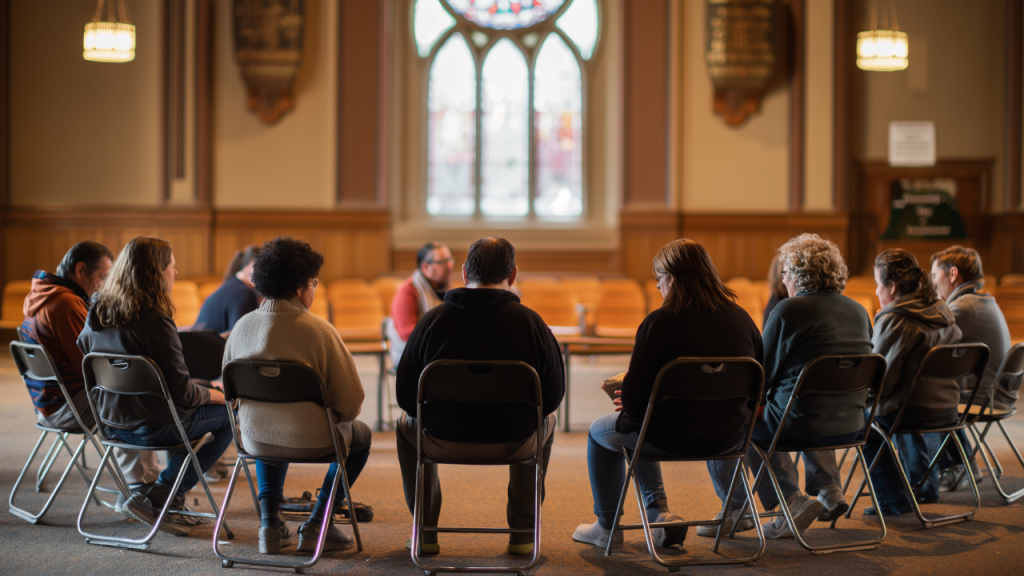Alcoholics Anonymous (AA) stands as a beacon of hope for millions worldwide, offering a path to recovery through its pioneering 12-step program. The story of AA’s founding is intrinsically linked to the life of one man, Bill Wilson, known affectionately within the AA community as Bill W. His journey from the depths of alcoholism to the founding of an international fellowship that has saved countless lives is both inspiring and instructive.
Bill W.’s Story
Bill Wilson was born on November 26, 1895, in East Dorset, Vermont. Growing up in a household marred by his parents’ separation, Bill experienced a troubled and lonely childhood. These early experiences sowed the seeds of his later struggles with alcohol. Despite these challenges, Wilson showed early signs of leadership and ingenuity, qualities that would later play a crucial role in the establishment of Alcoholics Anonymous.
Wilson’s descent into alcoholism began after his service in World War I and continued through his early career in the stock market. By the 1930s, his drinking had become severe, endangering his health, career, and marriage. Despite numerous attempts to quit, Wilson found himself trapped in the cycle of addiction, a plight familiar to many who suffer from alcoholism.
The turning point came in 1934 when Wilson was hospitalized for his alcoholism. There, he had a spiritual awakening after a visit from an old friend and fellow alcoholic, Ebby Thacher, who had found sobriety through a spiritual program. Inspired by Thacher’s example, Wilson embarked on a path of recovery, emphasizing the necessity of spiritual growth and the support of fellow alcoholics.
Wilson’s efforts to maintain his sobriety led him to Dr. Bob Smith, a surgeon from Akron, Ohio, who struggled with his own alcoholism. Together, in 1935, they founded Alcoholics Anonymous, a fellowship based on the principle of mutual aid and the sharing of experiences to overcome alcoholism. Wilson authored “Alcoholics Anonymous,” known as the Big Book, which outlined the 12-step program of personal recovery and spiritual growth.

The Legacy of Alcoholics Anonymous
Bill W.’s legacy is not just the founding of AA but also the development of a program that has become a global lifeline for those struggling with addiction. His insistence on anonymity, humility, and the sharing of personal stories created a safe space for alcoholics to seek help without fear of judgment. Wilson dedicated his life to the AA movement, traveling extensively to promote the fellowship and support its members, until his death on January 24, 1971.
Today, Alcoholics Anonymous has grown into an international organization with millions of members, all owing their recovery journey to the principles laid down by Wilson and his co-founders. AA’s success has also inspired the creation of other 12-step programs addressing various addictions, making Wilson’s contribution to the field of addiction recovery immeasurable.
In Tennessee, where the struggle with addiction mirrors the national plight, the story of Bill W. and the founding of Alcoholics Anonymous resonates deeply. JourneyPure At The River embraces the principles laid out by Wilson, offering comprehensive recovery programs that address the physical, emotional, and spiritual aspects of addiction.
The 12 Steps: A Path to Recovery
At the heart of AA’s approach to recovery are the 12 Steps, a set of spiritual principles that guide individuals through the process of admitting powerlessness over alcohol, seeking a higher power’s help in recovery, making amends for past harms, and helping other alcoholics achieve sobriety. These steps emphasize personal accountability, the importance of community, and spiritual growth, regardless of individual religious beliefs.
The Role of Meetings and Sponsorship
AA meetings are the lifeblood of the fellowship, providing a forum where members share their experiences, strengths, and hopes with each other. These gatherings are held in various formats, including speaker meetings, discussion meetings, and Big Book studies, catering to the diverse needs of the membership.
Sponsorship is another critical component of the AA program, wherein a more experienced member (the sponsor) offers guidance and support to a newer member (the sponsee). This relationship is based on mutual respect and confidentiality, fostering a personalized approach to working through the 12 Steps.
Anonymity and the Twelve Traditions
Anonymity is a fundamental principle of AA, underscored by the Twelve Traditions that govern the organization’s operations. These traditions protect members’ privacy, ensure the fellowship’s unity, and maintain its focus on the primary purpose of carrying its message to the alcoholic who still suffers. Anonymity emphasizes the equality of all members and safeguards the organization from external influences and internal conflicts.

AA’s Global Reach and Legacy
Since its inception, AA has grown into a worldwide movement with over two million members in more than 180 countries. The organization’s adaptability to different cultures and the universality of its message have contributed to its global impact. AA’s legacy extends beyond alcohol recovery, inspiring the creation of other 12-step programs addressing various addictions and compulsive behaviors.
Get Help Today
Alcoholics Anonymous represents a groundbreaking approach to addiction recovery, emphasizing peer support, spiritual growth, and personal responsibility. Bill W.’s story and the founding of AA have left an indelible mark on the world, offering hope and a solution to those afflicted by alcoholism. The principles and practices developed by Wilson and his peers continue to guide individuals toward a life of sobriety and purpose.
At JourneyPure At The River, we recognize the profound impact that AA’s philosophy has on recovery. Our programs integrate the timeless wisdom of the 12 Steps with modern therapeutic practices to support your customizable recovery journey. If you’re seeking a way forward from addiction, reach out to us at 629-222-9449. Let us help you embark on a journey of recovery, inspired by the enduring legacy of Alcoholics Anonymous. Together, we can find a new freedom and a new happiness.
